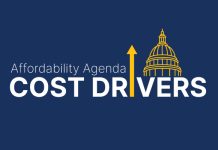 Governor Gavin Newsom on Sunday signed important legislation sponsored by the California Chamber of Commerce that allows California to take a crucial first step forward in fostering an artificial intelligence (AI)-literate population and future workforce by teaching AI literacy in schools.
Governor Gavin Newsom on Sunday signed important legislation sponsored by the California Chamber of Commerce that allows California to take a crucial first step forward in fostering an artificial intelligence (AI)-literate population and future workforce by teaching AI literacy in schools.
The bill, AB 2876 (Berman; D-Palo Alto), requires the Instructional Quality Commission (IQC) to consider adding media literacy and AI literacy the next time the State Board of Education adopts the instructional materials for the English language arts/English language development curriculum framework.
“The importance of what AB 2876 will accomplish cannot be overstated,” said CalChamber Chief of Staff for Policy Ben Golombek. “If California is to successfully harness the tremendous promise AI offers, it is vital that we place greater emphasis and resources on preparing students with the foundational knowledge and skills necessary to identify, understand, and successfully utilize all kinds of AI that they may encounter in their future workplaces. Just like reading, writing, and arithmetic, digital literacy and AI literacy are basic skills that students need to develop if they are to succeed in the modern world.”
AB 2876
AB 2876 will allow California’s schools to teach students the skillsets necessary to understand and use AI technology, as well as teaching them its limitations, implications, and ethical considerations.
Perhaps more so than any other technological advancement made since the advent of the internet, AI is undeniably a transformative technology that will have a widespread impact on virtually all aspects of society and the economy. From making lifesaving advancements in medicine, to optimizing energy usage to address climate change, and identifying efficiencies across the economy, AI will help achieve advancements that we cannot yet even imagine across every field and every area of our lives. AI, however, can also be applied in less desirable ways, such as spreading disinformation. As seen with every other major technological advancement in history, the rapid integration of this continually evolving technology can raise concerns around the impact on workers, as well as questions around ethics, transparency, and accuracy.
Public education is the key to making AI’s potential benefits a reality while also limiting its negative outcomes.
It is imperative that students are prepared with the knowledge and skills necessary to interact with and use this groundbreaking technology responsibly.
Staff Contact: Ronak Daylami


